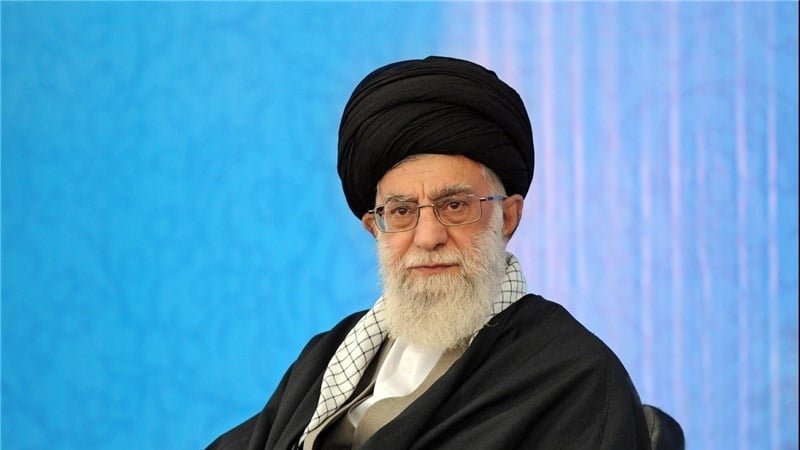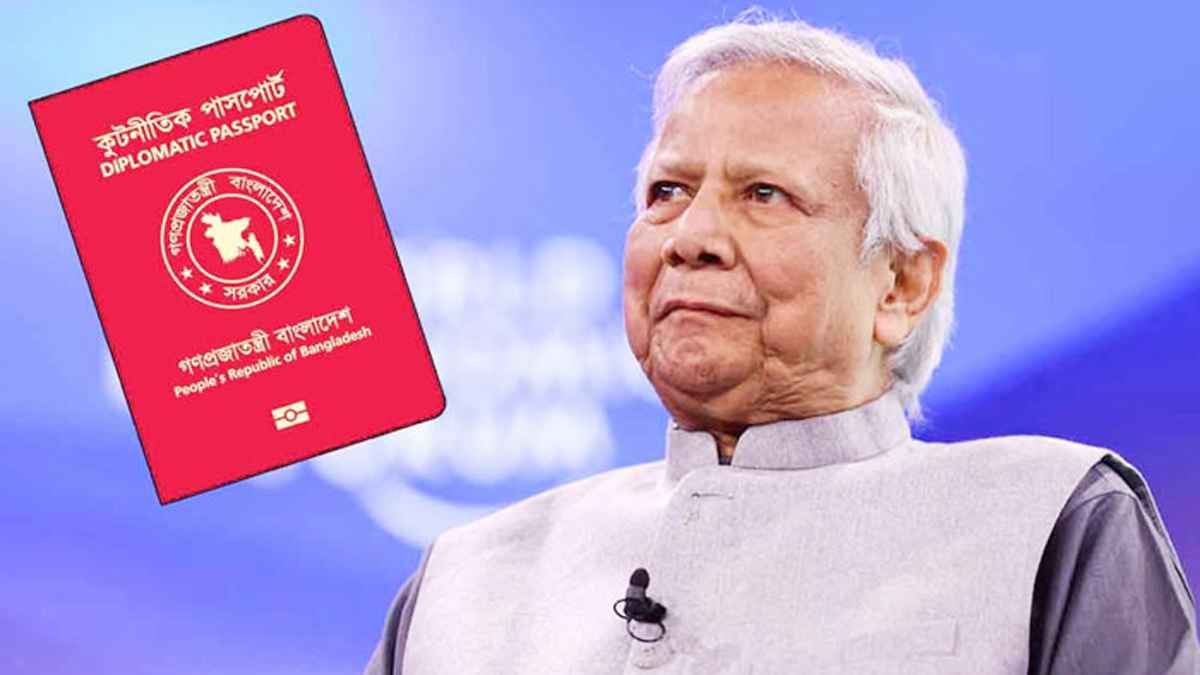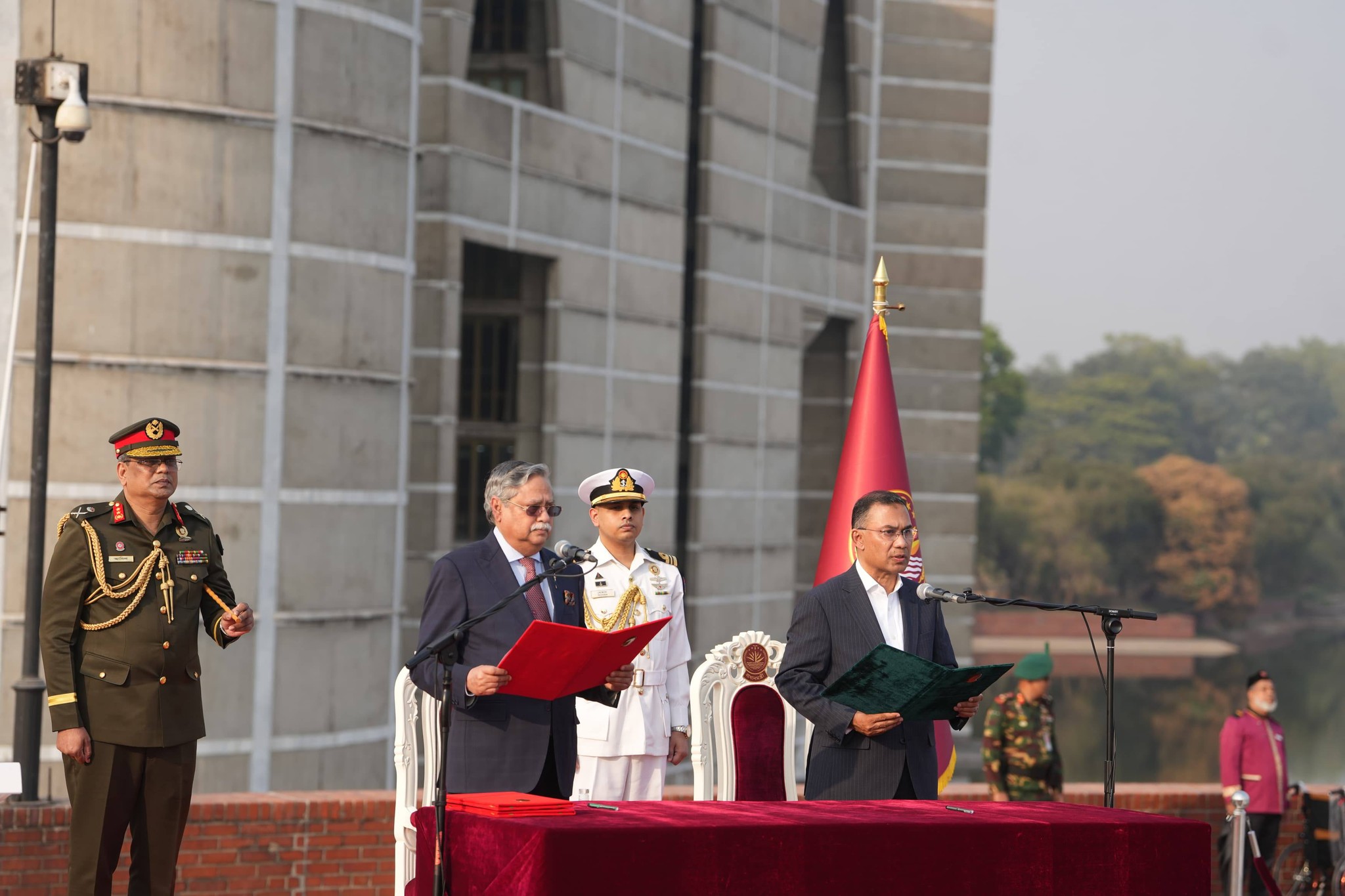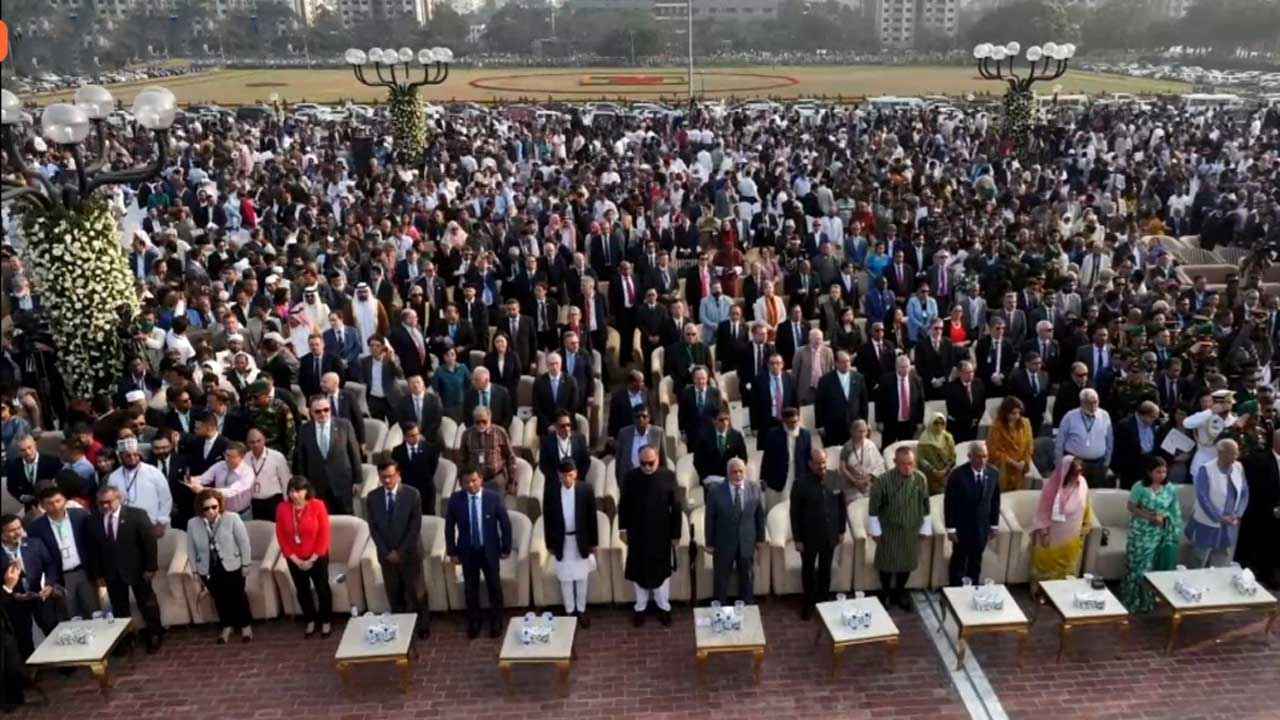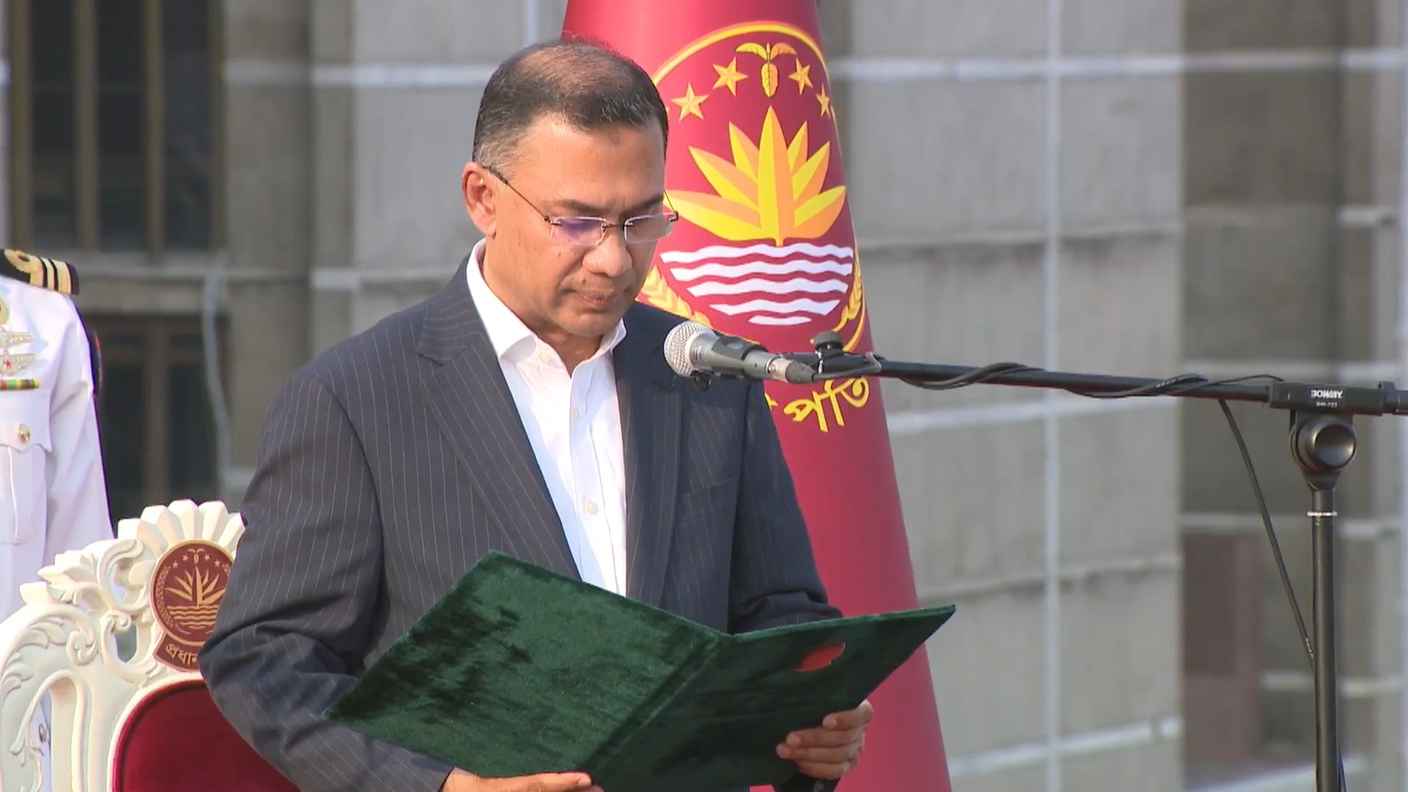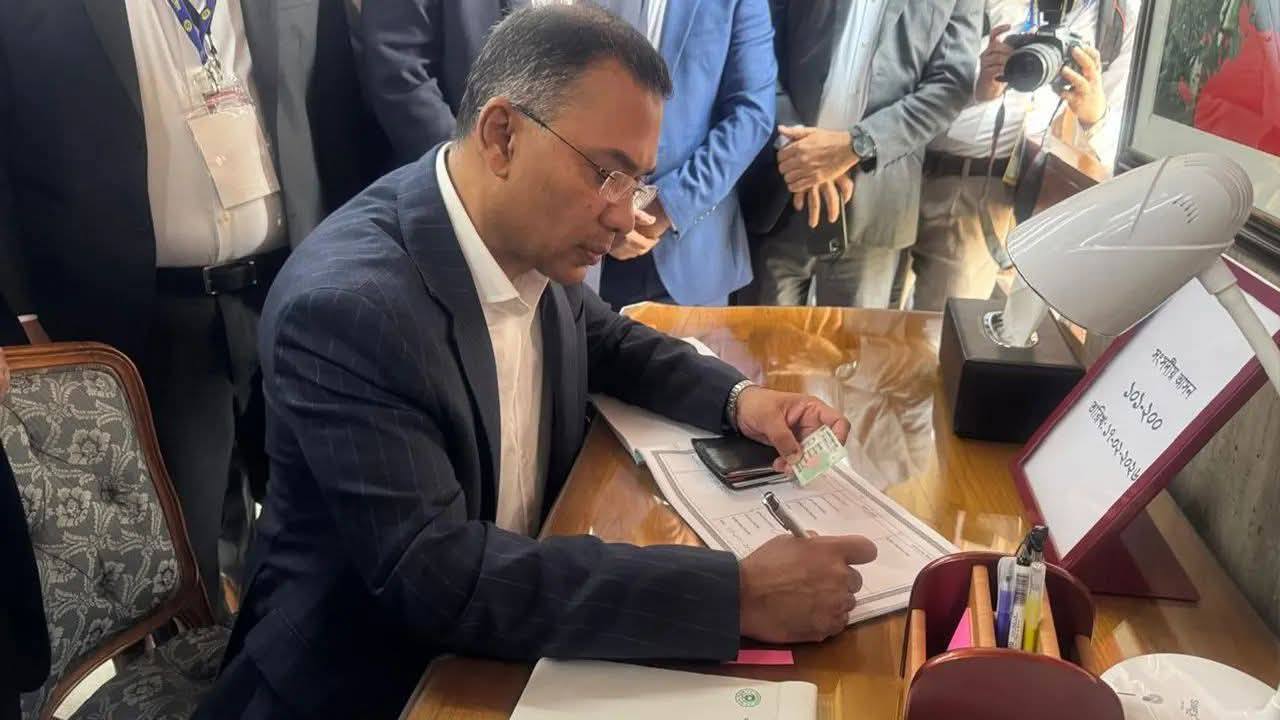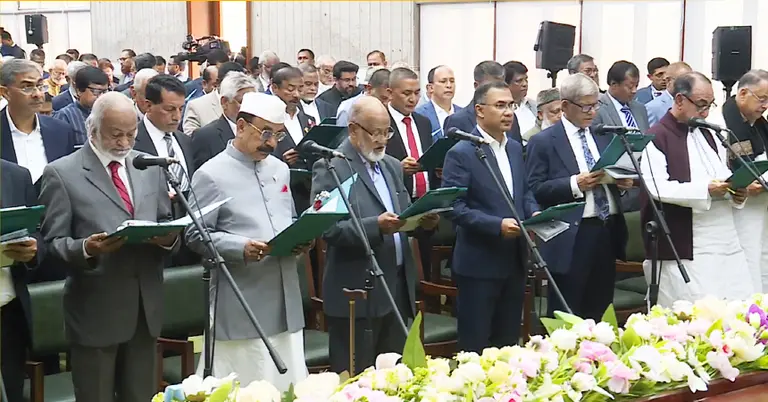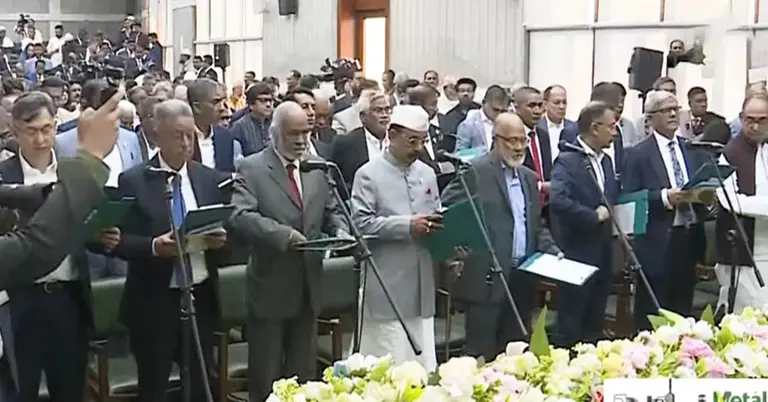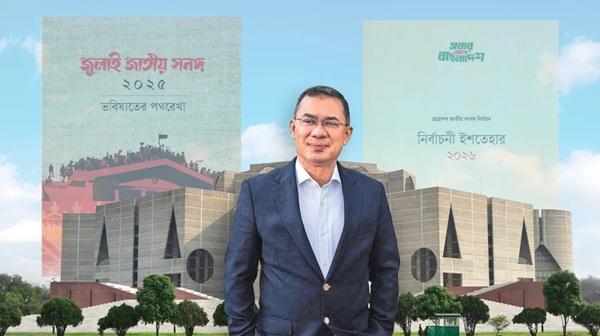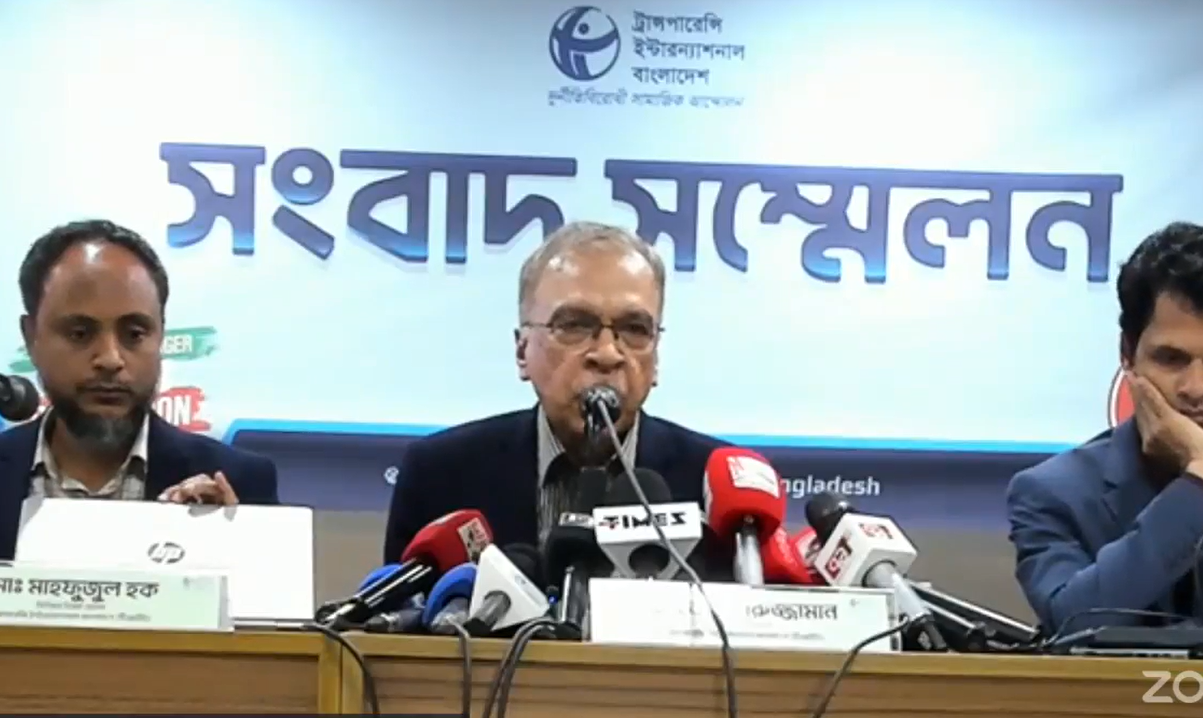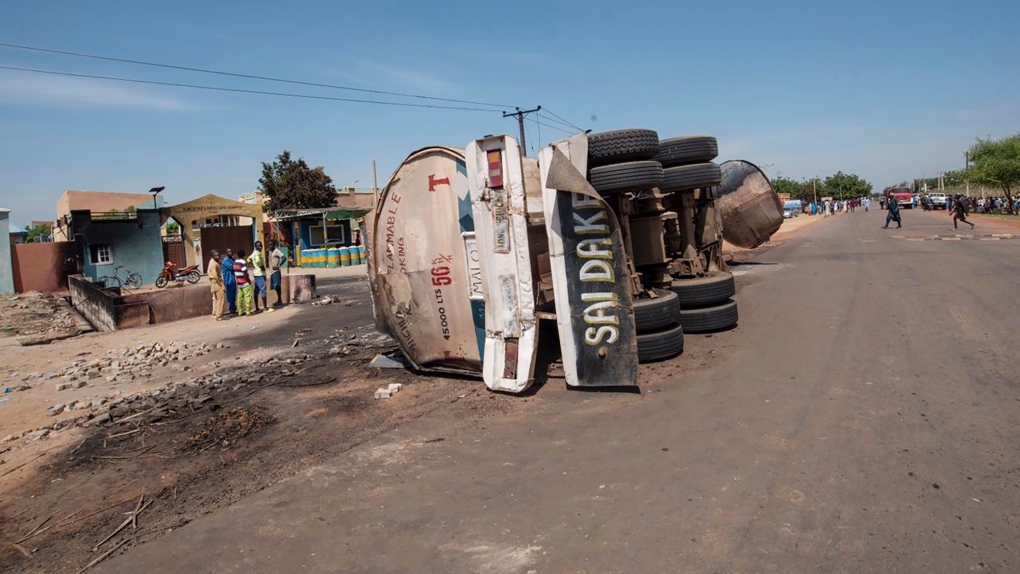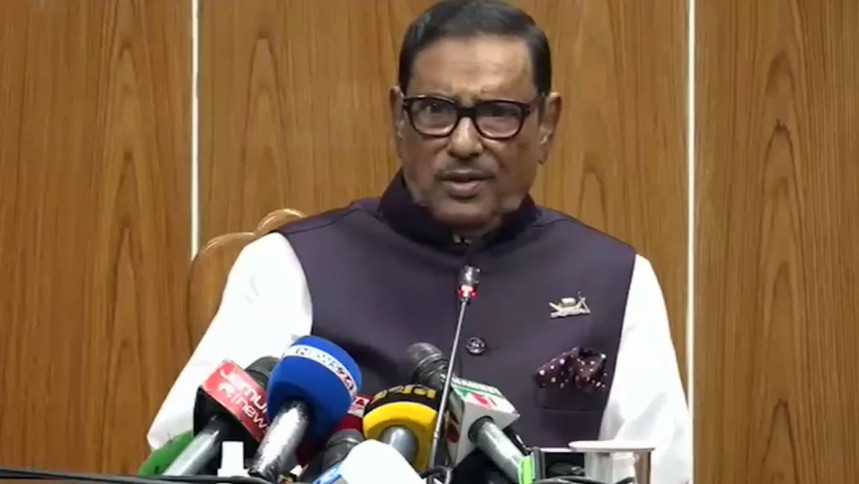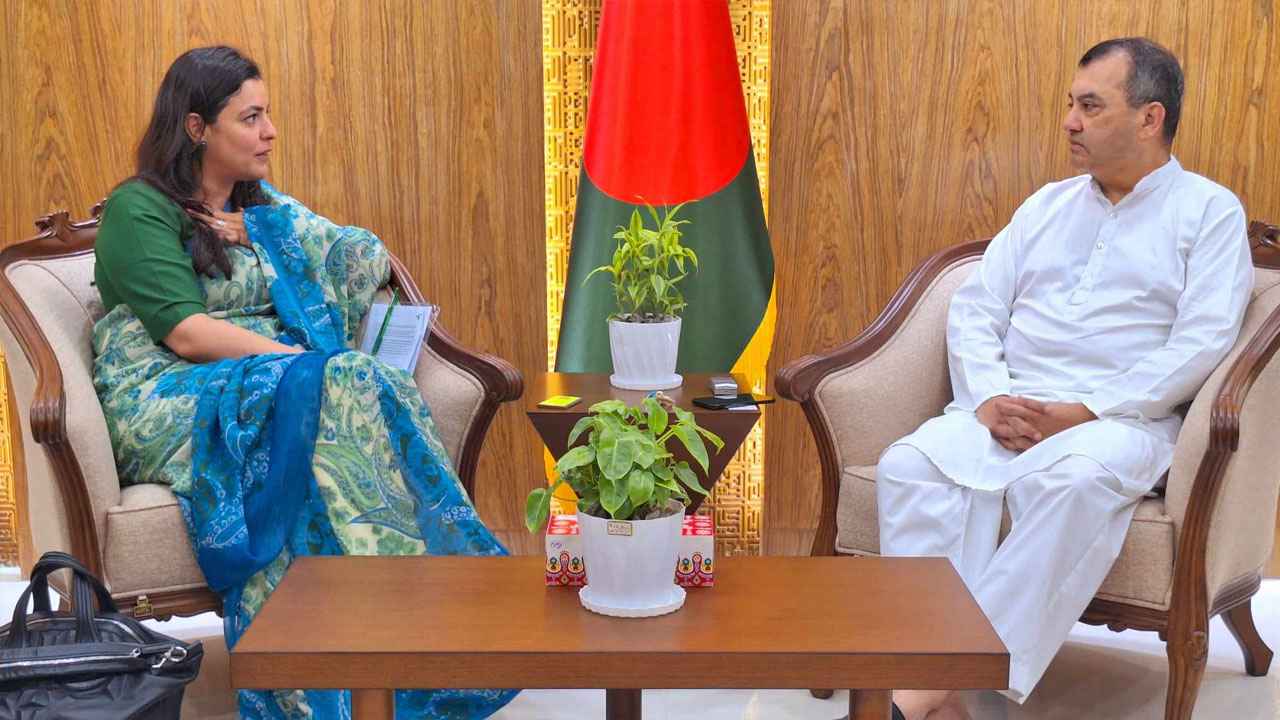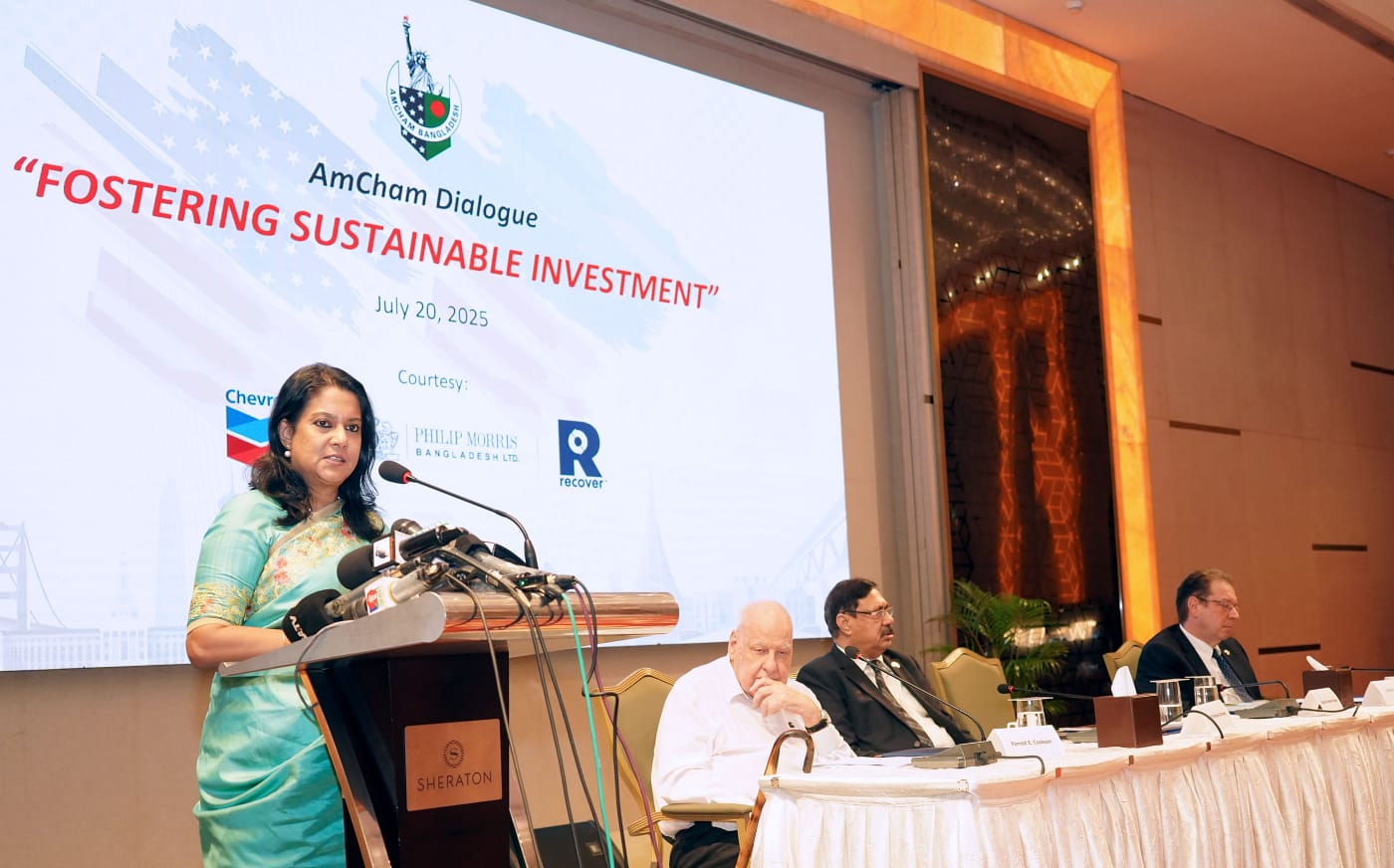
Syeda Rizwana Hasan, Adviser to the Ministry of Environment, Forest, and Climate Change and Ministry of Water Resources said We must pursue both sustainable transactions and sustainable investments. Sustainable investment is not just a national ambition—it must be a global commitment. She said that sustainability must go hand in hand with equity. “If resource-intensive economies continue to consume disproportionately, no global sustainability framework will hold.” she asserted.
Environment Advisor said this while addressing the AmCham Dialogue on Fostering Sustainable Investment on Sunday at a hotel in Banani, Dhaka.
Highlighting the textile and energy sectors, Rizwana Hasan praised emerging innovations such as waterless dyeing models and emphasized the importance of finalizing the Industrial Water Use Guidelines, which aim to regulate groundwater extraction and ensure fair pricing. “Once industries start paying for water, they’ll use it more responsibly,” she added.
The Adviser also called for stronger chemical safety regulations, noting that harmful substances, while phased out from exports, remain in domestic production. “We’re waiting for a binding chemical management rule for the textile sector. It’s a public health imperative,” she stressed.
On the energy front, Syeda Rizwana noted the government’s recent adoption of the Renewable Energy Policy, setting an ambitious target of achieving 30% renewable energy by 2030. “Bangladesh’s journey toward energy sovereignty must begin now. Every government office will be required to install renewable energy facilities,” she announced, adding that this transition must be realistic and locally tailored.
Addressing climate justice, she remarked, “Bangladesh is among the worst victims of climate change, yet the crisis was not created here. A sustainable global order must account for this injustice.” On the ongoing tobacco regulation debate, Rizwana Hasan reiterated the government's commitment to consult all stakeholders. “Public health must take precedence. We must be inspired by models like Singapore, where non-compliance with tobacco laws is below 5 percent” she said.
Calling for awareness and shared responsibility, she concluded, “Sustainability shouldn’t be seen as a producer’s burden alone. The cost must be shared fairly by both buyers and producers to ensure a just transition for millions of workers behind our growth.”
The event was attended by Syed Ershad Ahmed, President, AmCham; Forrest E. Cookson, Economist and Former AmCham President and Eric M. Walker, Vice-President, AmCham & President, Che Bangladesh. The event, organized by the American Chamber of Commerce in Bangladesh (AmCham), brought together business leaders, policymakers, and environmental experts to discuss green growth, investment ethics, and policy readiness in Bangladesh. The dialogue featured presentations by Recover, Chevron Bangladesh, and Philip Morris Bangladesh.


